Photographs: Matthias Hangst/Getty Images Mauktik Kulkarni
The entire tournament has been unpredictable but Germnay’s Mario Goetze Andre Schuerrle are looking at another decade or more of glorious careers, says Mauktik Kulkarni.
At the start of this World Cup, if somebody had told me that Andre Schuerrle would be delivering a perfect cross from the left to Mario Goetze, who would finish the counter-attack with everything that makes fans love this sport – athleticism, precision and beauty – I would have laughed out loud. Not because they are incapable of scoring goals.
As regular fixtures in the Chelsea and Bayern Munich teams, respectively, both have amply demonstrated their talent and hunger to score. And with Schuerrle at age 23 and Goetze at 22, they are both looking at another decade or more of glorious careers. But with a roster that boasts of names like Bastian Schwansteiger, Miroslav Klose, Philip Lahm, Thomas Muller, Mesut Ozil and Sami Khedira, how much time were Schuerrle and Goetze realistically going to get on the field?
The question became even more relevant as the tournament progressed to the knock-out stages. With the stakes getting higher, German coach Joachim Loew opted for a starting line-up with more experience than youth. Schuerrle and Goetze both got enough playing time in the knock-out stages, but mostly as substitutes. And, had Sami Khedira not been ruled out and had the final been over in regulation time, Schuerrle and Goetze may not have gotten enough time to even break a sweat in the finals.
- ...
A Finale worthy of the Maracana
Image: Iker CasillasPhotographs: Ian Walton/Getty Images
But that is how unpredictable the entire tournament has been. Nobody had expected Spain and Italy – the winner and runner-up, respectively, of Euro Cup 2012 – to get eliminated in the group stage.
Nobody had expected Costa Rica, Chile or the United States to announce their arrival in the big league and bow out with respect. Nobody had expected the tournament to match the tally of the highest-ever number of goals scored (171). And nobody had expected Brazil to reach the semi-final, only to get seven of those goals scored against them in one match.
- ...
A Finale worthy of the Maracana
Image: Argentina fans gather on Copacabana BeachPhotographs: Michael Steele/Getty Images
Although this was one of the most open World Cups with no clear front-runner at the start of the tournament, Germany and Argentina restored some sanity by winning their respective semi-final clashes, albeit in contrasting styles. The two teams were clearly the top five, if not the top three, teams that pundits were picking to go all the way. The insanity, though, was unfolding on the streets of Rio de Janeiro.
With less than 3000 kilometers separating Buenos Aires and Rio de Janeiro, something akin to mass migration was underway as soon as Brazil lost their semi-final and Argentina won theirs. With no love lost between these two countries – socially, politically and in football – Brazilians had started selling their tickets and Rio de Janeiro residents had started planning weekend trips in anticipation of all the rowdiness associated with football. On the other hand, thousands of Argentineans had crammed themselves into flights, buses, trucks and cars from all parts of the country to descend on Rio de Janeiro and witness their team win the World Cup on Brazilian soil.
Since Friday night, the entire city had turned into a party town. With all the hotels full, Argentineans had brought in their tents and stoves and slept below the bridges, in empty parking lots or wherever they could find a quiet spot.
To rub some salt on the Brazilian wounds, the Argentinean fans had even come up with a song in Spanish “Brazil, decíme qué se siente, tener en casa tu papa” (“Brazil, tell me how it feels, to have your daddy in your house).” The song could be heard coming out of every Argentinean car or bus roaming the streets of Rio before the final. And when people started gathering at Copacabana beach 7-8 hours before the kick-off, it was already hitting fever pitch. It was not possible to walk for even two minutes without hearing the song. German fans were few and far between and the yellow sand had turned into a sea of blue and white stripes. The police presence around every block made the city resemble a garrison town.
- ...
A Finale worthy of the Maracana
Image: Gonzalo Higuain of Argentina scores a goal past Manuel Neuer of Germany but it was disallowed due to offsides being calledPhotographs: Jamie Squire/Getty Images
Thanks to some nerves and glaring offensive mistakes, the spectators had to be content with just one goal in 120 minutes. Perhaps the most unforgivable mistake for Argentina was the opportunity that Gonzalo Higuain squandered in the first half.
With Toni Kroos messing up the header back to Manuel Neuer, Higuain found himself in front of the wide open goal with only Neuer to beat. He somehow managed to hit it out. He made amends before the end of the first half, netting a perfect cross from Ezequiel Lavezzi, only to be found offside. The celebrations on Copacabana beach lasted only half a minute, but they were a treat to watch.
- ...
A Finale worthy of the Maracana
Image: Argentina players watch Germany players celebrate winning the 2014 World Cup final at the Maracana stadium in Rio de JaneiroPhotographs: Damir Sagolj/Reuters
Lionel Messi created a few good chances, the most notable being the one within the first five minutes of the second half. Unfortunately, like the last free-kick of the match, he could not finish his own good work or that of his teammates. But the night truly belonged to the German team. While Argentina was relying primarily on counter-attacks, the Germans were guarding the ball and setting the pace of the match.
Through immense discipline in passing and controlling the ball, Kroos and Klose came agonizingly close to finishing the job in regulation. In the end, the job the experienced hands could not complete was handled with aplomb by the two rising stars of Germany; Schuerrle and Goetze. The counter-attack and perfect cross from Schuerrle, the precise control with his chest by Goetze and his beautiful finish with just enough turn should make the goal one of the best goals of the tournament, if not the goal of the tournament.
- ...
A Finale worthy of the Maracana
Image: Germany's Miroslav Klose celebratesPhotographs: Ralph Orlowski/Reuters
This incredible World Cup ends with several side stories. Klose got his 16th and 17th goals to put himself in the history books. But more importantly, he lifted the trophy in his fourth and final World Cup.
At 22 years of age, Neymar Jr. has shown signs of leadership. However, Brazil will have to revamp its roster to become a World Cup contender again. Arjen Robben, who perhaps deserved the Golden Ball instead of Lionel Messi, ended another campaign with a stellar performance mixed with agony. With his Golden Boot, James Rodriguez has established his country Colombia as a legitimate contender for regional and international tournaments.
Like a war hero, Bastian Schwansteiger lifted the trophy after bleeding on field. The biggest story of the tournament, though, has to be Lionel Messi’s failure to rise up to the occasion and conjure up the magic to become a legend. Not in some nondescript corner of the world, but in the Maracana, where the Argentineans would have loved to see him win the most.
It was captured beautifully by a local daily in Brazil in a headline the morning after that read “Argentina, decíme qué se siente, perder en casa de tu papa” (“Argentina, tell me how it feels, to lose in your daddy’s home).” For Messi and Argentina, because of the location and the occasion, this one will hurt for a long time to come.
- Mauktik Kulkarni is an author, movie-maker, travel buff and sports enthusiast.

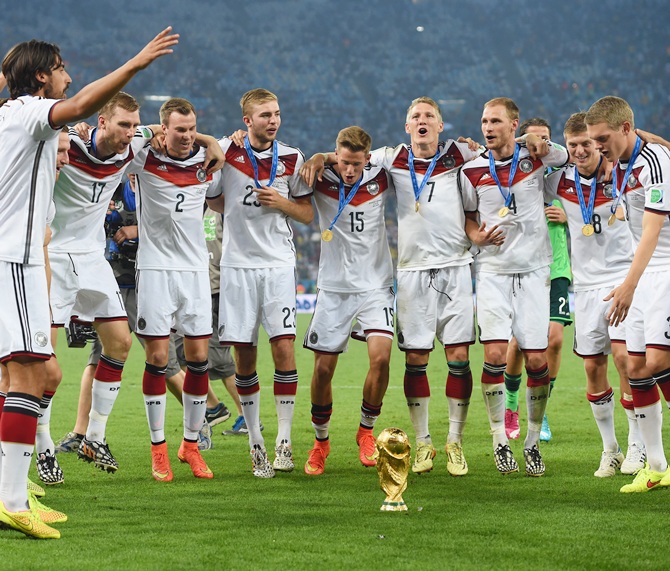
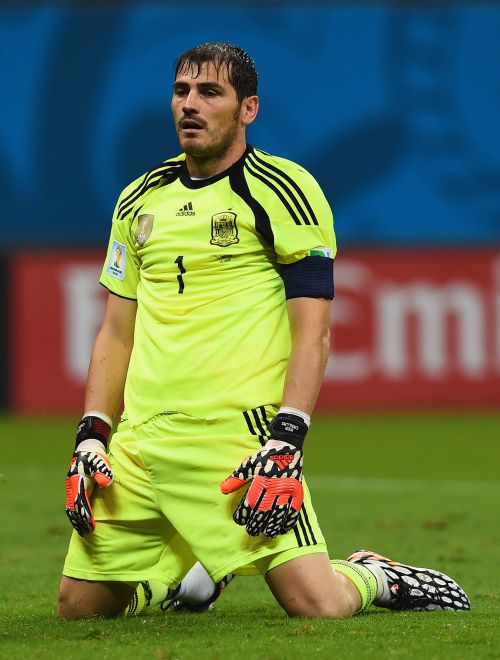
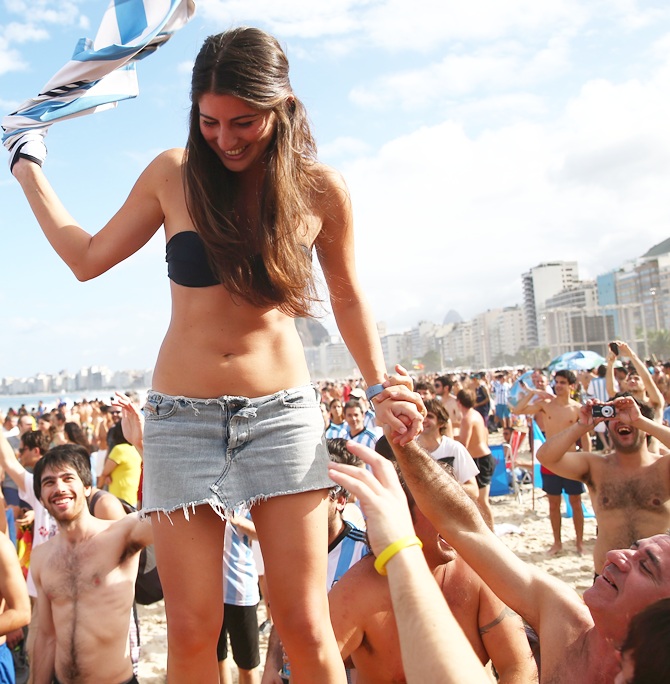
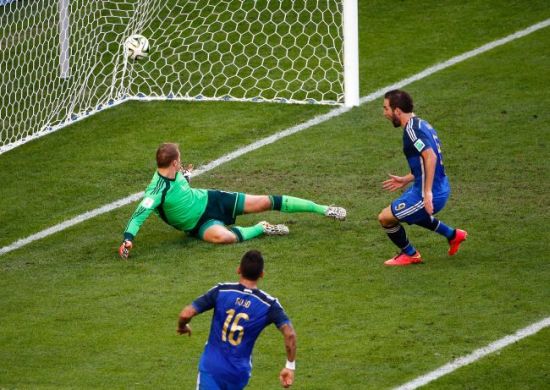
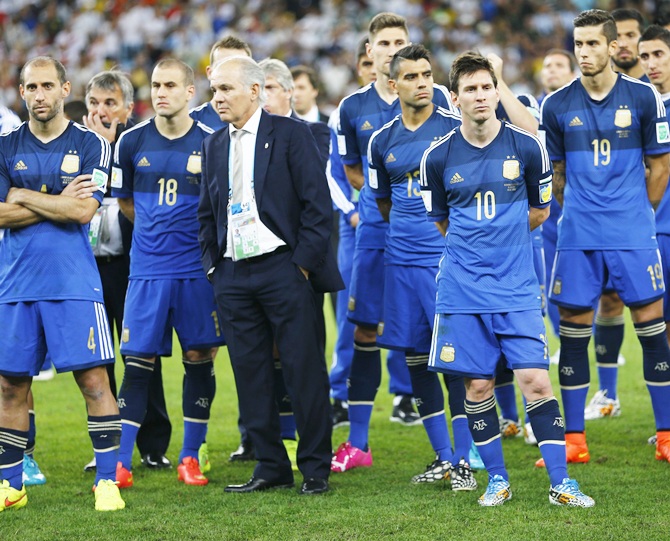
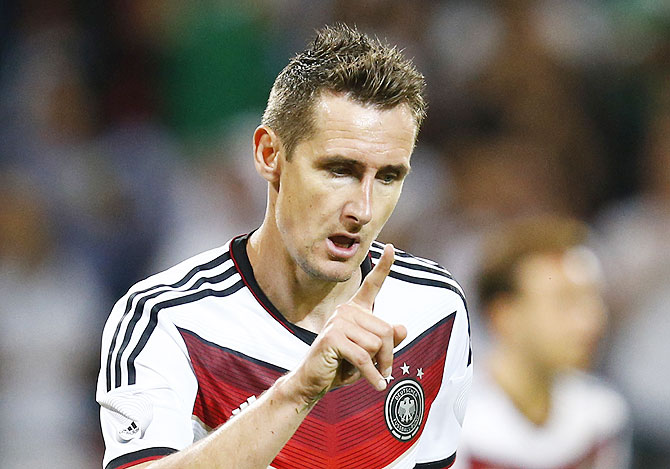
Comment
article